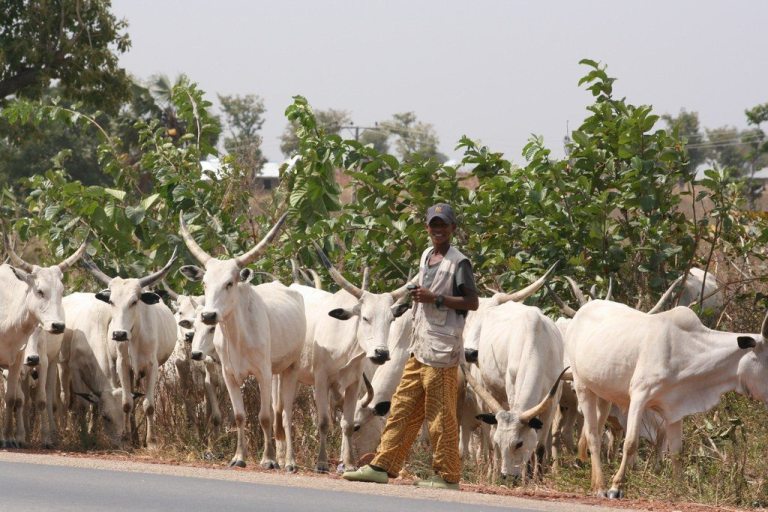BY JUNAIDU MAINA
Think farmer–herder clashes are uniquely Nigerian? Think again. Long before Fulani herders crossed sorghum and yam fields, American cattlemen were squaring off with wheat and potato farmers on the open range. The conflict once again centred on the timeless question: who controls the land, the grass, and the water? As Nigerian late musician Sonny Okosun once asked, “Who owns Papa’s land?”
In 19th-century America, cattle ranchers ruled the open range. Herds moved freely across public land, following stock routes to pastures and markets. Then came the farmers—homesteaders armed with ploughs and, most fatefully, barbed wire. Patented in 1874 and hailed as “the cheapest fence ever invented,” barbed wire was a farmer’s dream but a rancher’s nightmare. Native Americans called it “devil’s rope,” as it left cattle with deep wounds. Almost overnight, stock routes were blocked, waterholes fenced off, and the open range carved into private plots.
Conflict followed swiftly. Ranchers cut fences at night, sparking the “Fence Cutting Wars” of the 1880s. Farmers fought back, militias formed, and blood was spilled. The Johnson County War of 1892 in Wyoming—pitting wealthy cattle barons against small farmers—showed how far things could spiral. It took federal troops to restore order.
Advertisement
Nigeria’s conflict follows a familiar script. For centuries, pastoralists practised transhumance—seasonally moving their herds along established stock routes, following moisture gradients to graze on open rangelands and fallow farmlands—while merchants drove trade cattle on hoof along these same routes to markets. But expanding farmlands have blocked routes, encroached on dry-season retreats and watering points (Fadama), and upset the fragile balance with pastoralists. Mobility now collides with population explosion, and without effective regulation, disputes escalate into violent clashes. As barbed wire ended America’s open range, expanding farms, expropriation of Fadama and blocked routes now mark the shrinking frontier for transhumance and trade cattle movement.
Violence flourishes where law enforcement is weak. On America’s frontier, sheriffs were few in number and often partial. In Nigeria, security forces are slow to respond, and the justice system is widely mistrusted, so communities resort to self-help. In both contexts, weak institutions allowed competition over land and resources to escalate into open conflict.
The Americans eventually found a way forward. In 1934, the Taylor Grazing Act created grazing districts (grazing reserves) and a permit system. Ranchers adapted to a regulated system, and while the cowboys lost their endless frontier, the conflicts eased.
Advertisement
Nigeria today stands at a crossroads, yet public debate is too often clouded by politics, misconceptions, and half-truths.
One misconception is that Nigeria lacks the land to accommodate both farmers and herders. In fact, Ethiopia—roughly the same size in land area but with a smaller population—supports nearly three times as many cattle. Rather than creating conflict, Ethiopia’s livestock sector contributes significantly to its fast-growing economy. Nigeria’s challenge is not land scarcity, but how land is managed and shared.
Another fallacy is the idea that this is primarily a religious conflict. It is frequently framed as Muslim herders versus Christian farmers. Yet in states such as Zamfara and Yobe, where both groups are predominantly Muslim, violent clashes still occur. Religion can exacerbate disputes, but the root cause lies in competition over land and water.
A further false narrative is that the violence is driven by “foreign invaders.” Politicians often point to Fulani herders from Niger, Chad, or Mali. While pastoralism is indeed a regional practice and cattle move across borders under ECOWAS protocols, the majority of herders involved in Nigeria’s current conflicts are citizens with long-established roots. Presenting them as outsiders shifts attention away from Nigeria’s own responsibility to address its land-use crisis.
Advertisement
Culture adds another twist. In the U.S., the conflict was romanticised as rugged cowboys versus virtuous homesteaders. In Nigeria, there’s the familiar tale of the saintly farmers and the belligerent herders. In practice, farmers may obstruct cattle routes, expropriate grazing areas and water sources, or even kill livestock, while herders may destroy crops or illegally graze on crop residues. Once conflicts are framed as identity struggles, compromise becomes nearly impossible. Revenge begets revenge, and both sides pay the price in lives, livestock, and livelihoods.
Politicians relish the theatre of appearing decisive by banning open grazing or deploying troops, but no ban or bullet can halt climate change, reverse desertification, or stop population growth. Lasting peace won’t come from force—it will come from good governance, smart land use, bold innovation, and community-led conflict resolution.
And what of pastoralism itself? Pastoralism isn’t primitive—it’s a smart survival system in lands where crops often fail. It feeds the economy with meat, milk, and livelihoods. What it needs is not extinction but a tech-driven update: sown pastures, developed grazing reserves, and stronger crop/livestock farming.
Before the farmer–herder conflict in Nigeria became politicised, it was mainly seasonal and driven by four undeniable risk factors. First, the World Bank–assisted Agricultural Development Projects (ADPs) promoted hybrid maize cultivation heavily dependent on chemical fertilisers. This shift ended the traditional practice of kraaling cattle on farms for manure in exchange for crop residues, or cash—effectively dismantling the centuries-old farmer–herder symbiosis. Second, the National Fadama Development Project expanded irrigation farming, expropriated large portions of dry-season grazing land. Third, climate change degraded rangelands and reduced the size of Lake Chad by as much as 90 percent. Fourth, escalating rural insecurity has disrupted pastoral systems. The combined effect of these forces has depleted the natural feed resources of ruminant production systems, weakened their resilience, and forced herders to abandon traditional grazing areas.
Advertisement
Lessons from America’s range war
Nigeria can draw important lessons from America’s experience with range wars. While pastoralists should be supported to acquire land and transition into agropastoralism or ranching—whether within or outside grazing reserves—open grazing is best managed through a permit system rather than outright bans. The goal should be to adapt pastoralism, not abolish it. Through dialogue, clear rules, and the use of modern technology, lasting peace can be achieved—provided the government leads with fair, firm, and consistent land-use governance.
Advertisement
Fortunately, Nigeria already has a framework to address this crisis and even update pastoralism. Existing laws such as the Grazing Reserve Law, the Land Use Act, and veterinary legislation provide a strong legal foundation. When effectively implemented, they can secure land tenure for all producers —from large-scale ranchers to smallholders, regulate livestock movement, improve husbandry, and strengthen disease control.
This approach provides a clear pathway to preventing farmer–herder conflicts, transforming livestock production, and strengthening food security. However, progress has been painfully slow. Many herders view the push for ranching as a foreign imposition that disregards their traditional way of life, while many farmers feel trapped in a cycle of insecurity and constant threat.
Advertisement
The U.S. learned through decades of conflict—Nigeria doesn’t have to. With the establishment of the new Ministry of Livestock Development—supported by modern technology, clear regulations, and strong governance— Nigeria has a unique opportunity to curb land-related violence and turn the current crisis into a springboard for a stable, prosperous livestock sector—the bedrock of resilient food systems.
Advertisement
Views expressed by contributors are strictly personal and not of TheCable.









